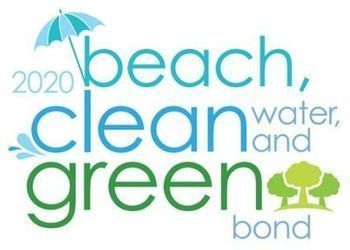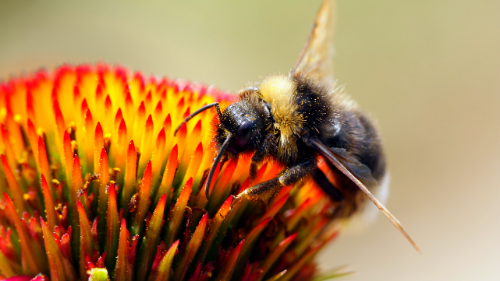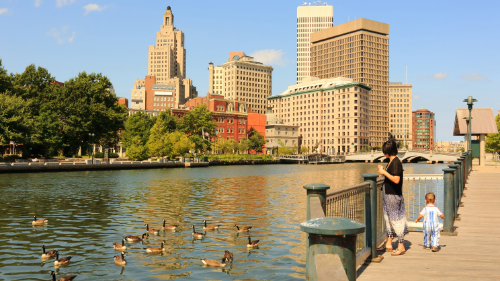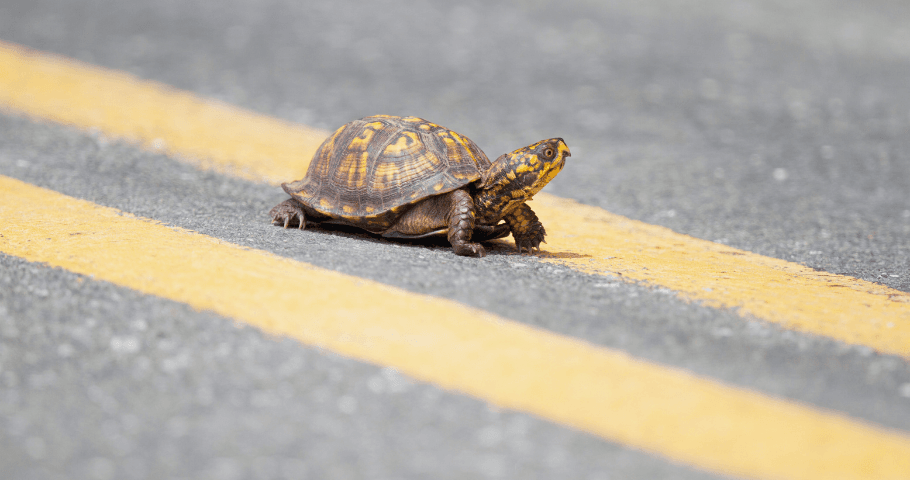
January 2021
The monthly Audubon Eagle Eye Advocacy Updates will provide you with simple actions you can take to help foster a cleaner, healthier planet along with local and national environmental news. Advocacy to protect birds and wildlife is a top Audubon priority and this work goes beyond testifying on their behalf on Smith Hill. Year round, we are working with our community partners and Rhode Island leaders to ensure the environment is a priority. These updates will keep you informed and ready to take action when the legislative session is upon us. As the newsletter continues, we are very interested in your suggestions and questions. Please send them to Audubon Senior Director of Policy Meg Kerr at mkerr@asri.org.
Sign up to get the Audubon Eagle Eye Advocacy Update in your inbox!
A Few Sustainability Tips to Kick off the New Year
Happy New Year! We have turned the page from 2020 to 2021. Here are a few ideas to consider to make YOUR New Year a bit more sustainable.
• Walk more and use your bike for transportation. January may not be the time to switch over to riding your bike, but think about your daily routine and find some driving that could be replaced with a walk. Then when it warms up a bit, pull your bike out and put it to good use. For me, I can easily walk or ride my bike to my local library and to the grocery store when there are just a few items to buy.
• Enjoy books and music electronically. I do love the feel of a book, but a more sustainable way to read your favorite new novel is to get an e-reader and buy or borrow the book from your library. The same strategy works for music – download songs and resist the impulse to buy old records or CDs.
• Eat less meat. Producing meat creates a large environmental footprint. Consider fixing healthy vegetarian dishes to replace at least some of the meals on your weekly menu that feature meat.
Beach, Clean Water and Green Bond goes to the voters on March 2
Please Vote YES!
The Beach, Clean Water and Green Bond includes the following programs:
• $33 million for upgrades to state beaches, parks and campgrounds
• $4 million for a park on former Interstate-195 land
• $4 million for local recreation projects
• $3 million for natural and working lands
• $15 million would go to clean water and drinking water
• $7 million for municipal resiliency projects to address climate change
• $6 million for Providence River dredging
• $2 million for the Woonasquatucket River Greenway.
These programs all contribute to keep Rhode Island the beautiful place we all enjoy. We know we can count on your support. Please encourage your friends and neighbors to also vote in support of the bond.
The Beach, Clean Water and Green Bond is one of seven bonds that will be on the ballot. All voters will receive an information handbook from the Secretary of State describing these bonds:
1) $107.3 million for higher education facilities
2) $74 million for the Beach, Clean Water and Green Bond
3) $65 million for housing and community opportunity
4) $71.7 million for transportation infrastructure state match
5) $15 million for early childhood care and education fund
6) $7 million for cultural arts and the economy grant program and state preservation
7) $60 million for industrial facilities infrastructure
The Great Backyard Bee Count
‘ “We’ve learned a lot from scientists in the birding community,” Dr. Woodard said. “We are hoping people of all ages and backgrounds will participate in monitoring bees that are local to their areas.”
The bee count will run through 2023, and the program encourages participants to sign up on its website or send an email to nationalnativebees@gmail.com.
“We’ve made collecting data easy,” Dr. Woodard said. “Once you join, you’ll get an email from a coordinator in your area and an app to use to upload photos and basic information of where the photos were taken.”
Scientists working with the program then identify the bees in the photos and record the information for their database.’
If you join this monitoring program, we would love to hear about your experience!
Climate Change Legislation at the 2021 Rhode Island General Assembly
Our top priority is ensuring that Rhode Island updates the 2014 Resilient Rhode Island Act to create mandatory and enforceable greenhouse gas reduction goals that will drive the state’s essential move away from fossil fuels. We will work to see passage of the 2021 version of the Act On Climate bill (2020: H7399 Sponsors: Rep. Blazejewski, Chair Abney, Chair Bennett, Rep. Carson, Rep. Ruggiero and S2165 Sponsors: Sen. Euer, Chair Lynch Prata, Chair Conley, Chair Sosnowski, Sen. Goodwin).
Making this bill our top priority is consistent with the newly adopted Audubon strategic plan which states, “Rhode Island has great plans to respond to climate change. But there is not nearly enough action fast enough from our elected officials and other gatekeepers. We reject the false premise that saving the environment must cause economic distress. As the pandemic is teaching us, nature and the economy are intrinsically linked. We will mobilize our members, and with our partners in the environmental community we will demand that Rhode Island achieves its pledged carbon neutrality and nurtures the natural ecosystems that protect our families, communities, and essential built infrastructure from the threats of a warming climate.”
We will update you each month on the progress of this bill and hope you will join us as we advocate for this critical policy to protect the birds and wildlife we all love so much.






















